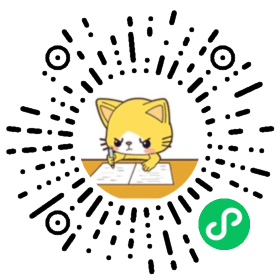【简答题】
试述上颌窦癌的临床表现。(2014年填空,2015年填空)
查看试卷,进入试卷练习

微信扫一扫,开始刷题

答案
以鳞癌最常见;早期无症状。当肿瘤发展到一定程度,出现以下症状:
(1)鼻部症状:侵犯上颌窦内壁,出现鼻衄、鼻塞,患侧嗅觉减退、分泌物增多等;
(2)眼部症状:侵犯上颌窦上壁,出现眼球突出、向上移位,结膜充血、复视、溢泪等;
(3)口腔症状:侵犯上颌窦下壁,一表现为牙松动、疼痛,龈颊沟肿胀等;
(4)面颊部症状:侵犯上颌窦前壁,破坏骨质后表现为面部及唇颊沟肿胀丰满,颊沟消夫,晚期可突破皮肤,形成癌瘘,甚至侵犯眶下神经,致颊部感觉迟钝或麻木;
(5)其他症状:侵犯上颌窦后壁时,侵入翼腭窝的翼板和翼肌,导致张口受限;晚期可发展到上颌窦任何部位,并可累及筛窦、蝶窦、颧骨、颅底等部位,引起相应症状。
(6)转移:常至下颌下及颈深上淋巴结,远处转移少见。
解析
暂无解析
相关试题
【单选题】
下列有关币制的说法正确的是___
A. 平行本位制下会产生“劣币驱逐良币”的现象
B. 双本位制下容易出现“双重价格”的现象
C. 金银复本位制是一种不稳定的货币制度
D. 双本位制下金币作为主币,银币作为辅币
【单选题】
下列关于货币层次说法正确的是___
A. M2以外的短期资产称为准货币
B. M1包括通货、活期存款和定期存款
C. 通货和活期存款具有充分的流动性
D. 准货币可以直接充当交易中介
【单选题】
通常情况下,证券的安全性、流动性与收益性三者关系正确的有___
A. 证券的安全性与流动性正相关, 与收益性负相关。
B. 证券的安全性与流动性负相关, 与收益性正相关。
C. 证券的安全性与流动性正相关, 与收益性正相关。
D. 证券的安全性与流动性负相关, 与收益性负相关。
【单选题】
某一具体的信用工具可能具有如下特点___
A. 流动性强、安全性高、收益 率高
B. 流动性差、安全性高、收益 率低
C. 流动性差、安全性低、收益 率高
D. 流动性强、安全性低、收益 率低
推荐试题
【单选题】
在信贷资金总量一定的情况下,信贷资金周转速度、流动性、安全性、效益性的关系是___。
A. 周转速度快,流动性就越强,安全性就越能得保证。但效益性较差
B. 周转速度快,流动性就越强,安全性就差,效益性较差
C. 周转速度慢,流动性就越差,安全性也就越差,效益性较差
D. 周转速度慢,流动性就越差,安全性也就越好,效益性较好
【单选题】
下列属于直接融资的行为有___。
A. 何某向工商银行借款100000 元专门用于其企业的工程结算
B. A 公司向B 公司投入资金8000000 元,并占有B 公司30%的股份
C. A 公司通过融资机构向B 公司借款600000 元
D. 何某通过金融机构借入资金120000 元
【单选题】
下列关于贷款种类说法,错误的是___
A. 按照贷款币种可分为人民币贷款和外币贷款
B. 按照贷款期限可分为短期贷款和中长期贷款
C. 按照贷款对象可分为生产企业贷款和外商投资企业贷款
D. 按照贷款利率可分为浮动利率贷款和固定利率贷款
【单选题】
下列不属于间接融资的行为有___。
A. 文小姐向银行借款10 万元专门用于其房屋装修
B. A 公司购入B 公司20%的股权,价值80 万元
C. 赵小姐春节期间通过信用卡透支了2 万元购买年货
D. 郑先生通过银行贷款购买了一辆车
【单选题】
关于商业银行“安全性、流动性和效益性原则”的说法,不正确的是___。
A. 为了保证贷款的安全性,商业银行需要合理安排贷款的种类和期限
B. 在信贷资金总量一定的情况下,资金的周转速度加快,效益性相应较差
C. 在贷款规模一定的情况下,一般贷款期限越长,收益越大
D. 贷款期限越长,安全性越高
【单选题】
公司信贷的借款人指___
A. 经工商行政管理机关(或主管机关)核准登记的自然人
B. 经行政机关核准登记的企(事)业法人
C. 经行政机关核准登记的自然人
D. 经工商行政管理机关(或主管机关)核准登记的企(事)业法人
【单选题】
以下关于流动比率和企业资产的变现能力关系的说法中,正确的是___
A. 流动比率越高,说明企业资产的变现能力越强
B. 流动比率越高,说明企业资产的变现能力越弱
C. 流动比率越低,说明企业资产的变现能力越强
D. 流动比率与企业资产的变现能力没有关系
【单选题】
下列关于资产负债率的论述中,错误的是___
A. 资产负债率=负债合计÷资产合计×100%
B. 资产负债率=资产合计÷负债合计×100%
C. 资产负债率反映项目各年负债水平、财务风险及偿债能力
D. 银行从债权安全的角度考虑,总希望借款人的负债水平低一点
【单选题】
下列公式中,不能反映存货周转速度的是___
A. 销货成本/平均存货余额×100%
B. 存货平均余额×计算期天数/销货成本
C. 计算期天数/存货周转次数
D. (期初存货余额+期末存货余额)/2
【单选题】
下列不属于企业财务状况风险的是___
A. 借款人在银行的存款有较大幅度下降
B. 应收账款异常增加
C. 流动资产占总资产比重下降
D. 短期负债增加适当,长期负债大量增加
【单选题】
一般企业贷款操作流程:___
A. 建立正式客户-评级-授信-申请贷款-发放贷款
B. 建立正式客户-授信-评级-申请贷款-发放贷款
C. 建立正式客户-申请贷款-评级-授信-发放贷款
D. 建立正式客户-申请贷款-授信-评级-发放贷款
【单选题】
借款人还款能力的主要标志就是___。
A. 借款人的现金流量是否充足
B. 借款人的资产负债比率是否足够低
C. 借款人的管理水平是否很高
D. 借款人的销售收入和利润是否足够高

